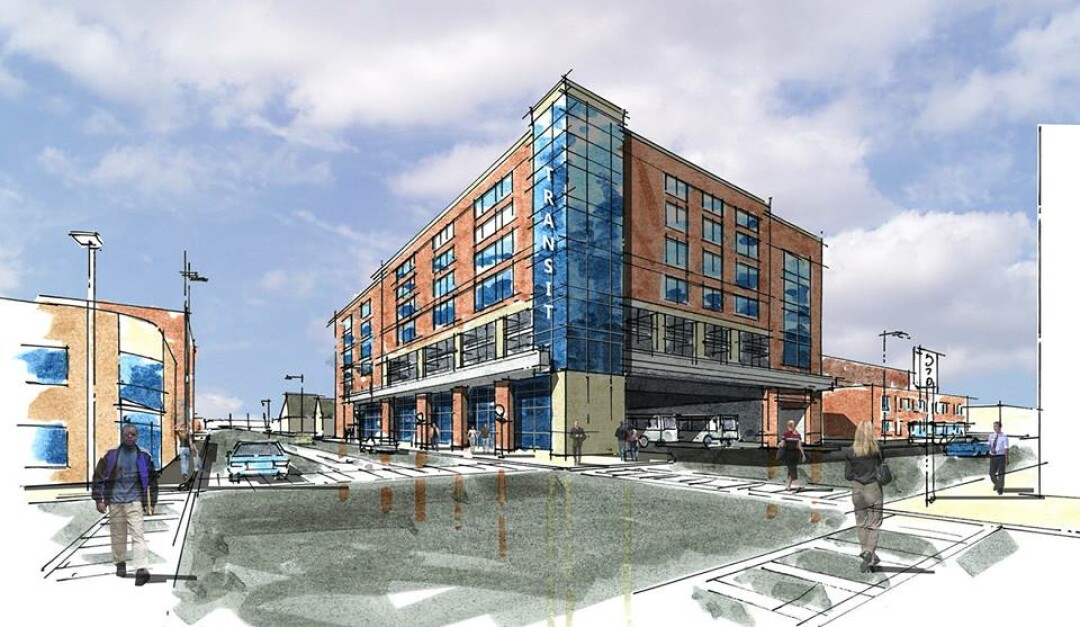Topping It Off: New Downtown Transit Center’s Private Component Yet to Be Finalized
three apartment floors planned above bus transfer center

The City of Eau Claire is hoping to reach an agreement in the coming weeks with an undisclosed private developer to build the top three stories of the new – and already under construction – Eau Claire Transit Center.
Ground was officially broken in September on a building that will combine a drive-in transfer center for Eau Claire Transit buses, two stories of parking, and three floors of apartments.
The apartments will be privately developed and owned, but they will be built as part of the current construction process, said Aaron White, the city’s economic development manager. Last year, the city had been in negotiations with Iowa-based Merge Urban Development to build the apartments.
“We just couldn’t make the numbers work with them,” White said of the negotiations with Merge, “but we have an experienced developer who’s interested, and we’re negotiating with them.”
(Merge, meanwhile, is still building the five-story Andante mixed use building just a few blocks away on North Farwell Street.)
”
we have an experienced developer who’s interested, and we’re negotiating with them.
AARON WHITE
CITY OF EAU CLAIRE ECONOMIC DEVELOPMENT MANAGER
The transit center project is on the 400 block of South Farwell Street, the site of the old, undersized concrete-block transfer center, which was built in 1984 and torn down in September. Construction is expect to take 12-14 months, and in the meantime a temporary bus transfer center is operating on the other side of Farwell Street in a city parking lot next to the historic Schlegelmilch House. That site will be used until the new facility is completed.
City officials have talked about building a new transit center for years, but the current project kicked off in 2018 when the U.S. Department of Transportation awarded a $5 million Transportation Investment Generating Economic Recovery (TIGER) grant to the city for the project.
Eau Claire Transit Manager Tom Wagener said the city’s portion of the project – excluding the apartment floors but including the temporary transit center – will cost approximately $6.7 million, most of it covered by that grant.
The transit center’s ground floor will have room for buses to come in and out, as well as a lobby for transit users, restrooms, and offices for transit supervisors.
The 50 to 60 apartments above are intended to be “workforce housing,” meaning the rent will be affordable for those making between 80% and 120% of the median county income, White said. The price of the private portion of the development hasn’t been finalized, he said, adding that he hopes an announcement will be made about a development agreement in the coming weeks.






















